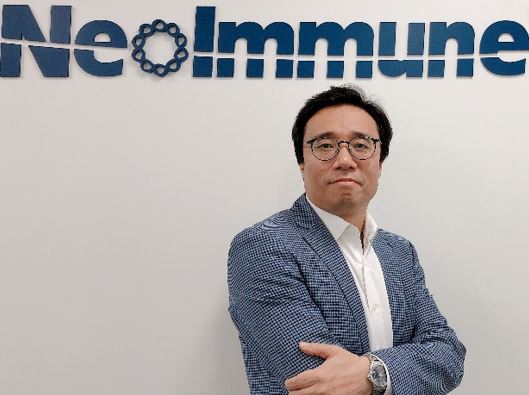기업
NeoImmuneTech Recieves FDA Approval of IND application GX-I7 + Tecentriq for Treatment of Skin Cancer
바이오스펙테이터 Sungmin Kim 기자
Genexine-NeoImmuneTech has received approval for Phase 1b/2a clinical trials of a combination treatment of GX-I7 and Tecentriq for relapsed metastatic skin cancer patients. "IL-7 is expected to increa

NeoImmuneTech, Inc. (NeoImmuneTech), an immunotherapy drug development company focused on advanced cancer treatments, and Genexine, today announced that the U.S. Food and Drug Administration (FDA) has accepted its Investigational New Drug (IND) application to evaluate the combination of Hyleukin-7 (IL-7-hyFc) and atezolizumab (Tecentriq®) in patients with high-risk skin cancers.
The phase 1b/2a clinical study will be led by NeoImmuneTech and the Immune Oncology Network (ION), a network of clinical research investigators from leading cancer centers and universities in North America that conducts multicenter trial of high priority immunotherapy agents. The purpose of this study is to evaluate the safety and preliminary anti-tumor activity of Hyleukin-7 in combination with Tecentriq in approximately 80 patients with anti-PD-(L)1 naïve or relapsed/refractory high-risk skin cancers. The planned multi-center open-label trial will be conducted in the US. ION is headquartered at the Fred Hutchinson Cancer Research Center in Seattle Washington.
Martin A. “Mac” Cheever, M.D., Director of ION and the National Cancer Institute’s Cancer Immunotherapy Trials Network had stated, “Hyleukin-7 has shown in multiple studies to substantially increase the total body complement of T cells with little toxicity. Hyleukin-7 is designed to be effective when used in concert with a variety of different immunotherapy regimens, including the combination with anti-PD-(L)1 that is being tested in this trial.”
“Patients with high-risk skin cancers have very poor prognosis and limited treatment options,” NgocDiep Le, M.D.,Ph.D., NeoImmuneTech Chief Medical Officer added. “Although anti-PD-1/PD-L1, including Tecentriq, can induce responses in a subset of patients with skin cancers, PD-(L)1 blockade fails to induce complete responses in most patients, especially those with low tumor infiltrating lymphocytes. Based on the mechanism of action of Hyleukin-7, we believe that combining Hyleukin-7 with a checkpoint inhibitor, such as Tecentriq, would increase the frequency and/or depth of responses to PD-1/PD-L1 inhibition.”... <계속>



















